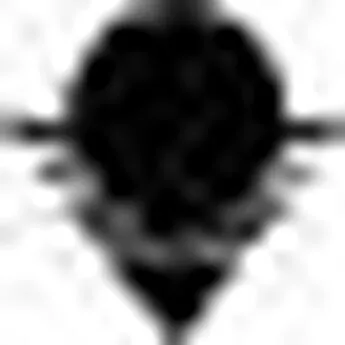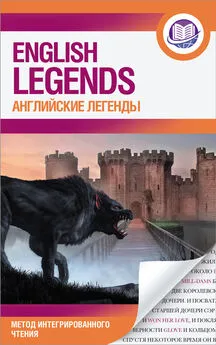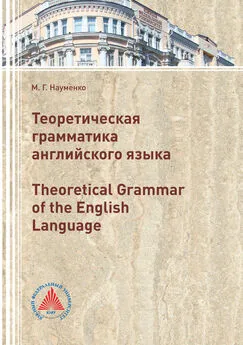Michael Ondaatje - The English Patient
- Название:The English Patient
- Автор:
- Жанр:
- Издательство:неизвестно
- Год:неизвестен
- ISBN:нет данных
- Рейтинг:
- Избранное:Добавить в избранное
-
Отзывы:
-
Ваша оценка:
Michael Ondaatje - The English Patient краткое содержание
The English Patient - читать онлайн бесплатно полную версию (весь текст целиком)
Интервал:
Закладка:
When he arrived in Erith the bomb zone was already lit. In daylight, on an innocent day, it would have been a field. Hedges, perhaps a pond. Now it was an arena. Cold, he borrowed Hardy’s sweater and put it on top of his. The lights would keep him warm, anyway. When he walked over to the bomb they were still alive in his mind. Exam.
With the bright light, the porousness of the metal jumped into precise focus. Now he forgot everything except distrust. Lord Suffolk had said you can have a brilliant chess player at seventeen, even thirteen, who might beat a grand master. But you can never have a brilliant bridge player at that age. Bridge depends on character. Your character and the character of your opponents. You must consider the character of your enemy. This is true of bomb disposal. It is two-handed bridge. You have one enemy. You have no partner. Sometimes for my exam I make them play bridge. People think a bomb is a mechanical object, a mechanical enemy. But you have to consider that somebody made it.
The wall of the bomb had been torn open in its fall to earth, and Singh could see the explosive material inside. He felt he was being watched, and refused to decide whether it was by Suffolk or the inventor of this contraption. The freshness of the artificial light had revived him. He walked around the bomb, peering at it from every angle. To remove the fuze, he would have to open the main chamber and get past the explosive. He unbuttoned his satchel and, with a universal key, carefully twisted off the plate at the back of the bomb case. Looking inside he saw that the fuze pocket had been knocked free of the case. This was good luck—or bad luck; he couldn’t tell yet. The problem was that he didn’t know if the mechanism was already at work, if it had already been triggered. He was on his knees, leaning over it, glad he was alone, back in the world of straightforward choice. Turn left or turn right. Cut this or cut that. But he was tired, and there was still anger in him.
He didn’t know how long he had. There was more danger in waiting too long. Holding the nose of the cylinder firm with his boots, he reached in and ripped out the fuze pocket, and lifted it away from the bomb. As soon as he did this he began to shake. He had got it out. The bomb was essentially harmless now. He put the fuze with its tangled fringe of wires down on the grass; they were clear and brilliant in this light.
He started to drag the main case towards the truck, fifty yards away, where the men could empty it of the raw explosive. As he pulled it along, a third bomb exploded a quarter of a mile away and the sky lit up, making even the arc lights seem subtle and human.
An officer gave him a mug of Horlicks, which had some kind of alcohol in it, and he returned alone to the fuze pocket. He inhaled the fumes from the drink.
There was no longer serious danger. If he were wrong, the small explosion would take off his hand. But unless it was clutched to his heart at the moment of impact he wouldn’t die. The problem was now simply the problem. The fuze. The new “joke” in the bomb.
He would have to reestablish the maze of wires into its original pattern. He walked back to the officer and asked him for the rest of the Thermos of the hot drink. Then he returned and sat down again with the fuze. It was about one-thirty in the morning. He guessed, he wasn’t wearing a watch. For half an hour he just looked at it with a magnified circle of glass, a sort of monocle that hung off his buttonhole. He bent over and peered at the brass for any hint of other scratches that a clamp might have made. Nothing.
Later he would need distractions. Later, when there was a whole personal history of events and moments in his mind, he would need something equivalent to white sound to burn or bury everything while he thought of the problems in front of him. The radio or crystal set and its loud band music would come later, a tarpaulin to hold the rain of real life away from him.
But now he was aware of something in the far distance, like some reflection of lightning on a cloud. Harts and Morden and Suffolk were dead, suddenly just names. His eyes focused back onto the fuze box.
He began to turn the fuze upside down in his mind, considering the logical possibilities. Then turned it horizontal again. He unscrewed the gaine, bending over, his ear next to it so the scrape of brass was against him. No little clicks. It came apart in silence. Tenderly he separated the clockwork sections from the fuze and set them down. He picked up the fuze-pocket tube and peered down into it again. He saw nothing. He was about to lay it on the grass when he hesitated and brought it back up to the light. He wouldn’t have noticed anything wrong except for the weight. And he would never have thought about the weight if he wasn’t looking for the joke. All they did, usually, was listen or look. He tilted the tube carefully, and the weight slipped down toward the opening. It was a second gaine—a whole separate device—to foil any attempt at defusing.
He eased the device out towards him and unscrewed the gaine. There was a white-green flash and the sound of a whip from the device. The second detonator had gone off. He pulled it out and set it beside the other parts on the grass. He went back to the jeep.
“There was a second gaine,” he muttered. “I was very lucky, being able to pull out those wires. Put a call in to headquarters and find out if there are other bombs.”
He cleared the soldiers away from the jeep, set up a loose bench there and asked for the arc lights to be trained on it. He bent down and picked up the three components and placed them each a foot apart along the makeshift bench. He was cold now, and he breathed out a feather of his warmer body air. He looked up. In the distance some soldiers were still emptying out the main explosive. Quickly he wrote down a few notes and handed the solution for the new bomb to an officer. He didn’t fully understand it, of course, but they would have this information.
When sunlight enters a room where there is a fire, the fire will go out. He had loved Lord Suffolk and his strange bits of information. But his absence here, in the sense that everything now depended on Singh, meant Singh’s awareness swelled to all bombs of this variety across the city of London. He had suddenly a map of responsibility, something, he realized, that Lord Suffolk carried within his character at all times. It was this awareness that later created the need in him to block so much out when he was working on a bomb. He was one of those never interested in the choreography of power. He felt uncomfortable in the ferrying back and forth of plans and solutions. He felt capable only of reconnaissance, of locating a solution. When the reality of the death of Lord Suffolk came to him, he concluded the work he was assigned to and reenlisted into the anonymous machine of the army. He was on the troopship Macdonald , which carried a hundred other sappers towards the Italian campaign. Here they were used not just for bombs but for building bridges, clearing debris, setting up tracks for armoured rail vehicles. He hid there for the rest of the war. Few remembered the Sikh who had been with Suffolk’s unit. In a year the whole unit was disbanded and forgotten, Lieutenant Blackler being the only one to rise in the ranks with his talent.
But that night as Singh drove past Lewisham and Blackheath towards Erith, he knew he contained, more than any other sapper, the knowledge of Lord Suffolk. He was expected to be the replacing vision.
He was still standing at the truck when he heard the whistle that meant they were turning off the arc lights. Within thirty seconds metallic light had been replaced with sulphur flares in the back of the truck. Another bomb raid. These lesser lights could be doused when they heard the planes. He sat down on the empty petrol can facing the three components he had removed from the SC-250kg, the hisses from the flares around him loud after the silence of the arc lights.
He sat watching and listening, waiting for them to click. The other men silent, fifty yards away. He knew he was for now a king, a puppet master, could order anything, a bucket of sand, a fruit pie for his needs, and those men who would not cross an uncrowded bar to speak with him when they were off duty would do what he desired. It was strange to him. As if he had been handed a large suit of clothes that he could roll around in and whose sleeves would drag behind him. But he knew he did not like it. He was accustomed to his invisibility. In England he was ignored in the various barracks, and he came to prefer that. The self-sufficiency and privacy Hana saw in him later were caused not just by his being a sapper in the Italian campaign. It was as much a result of being the anonymous member of another race, a part of the invisible world. He had built up defences of character against all that, trusting only those who befriended him. But that night in Erith he knew he was capable of having wires attached to him that influenced all around him who did not have his specific talent.
A few months later he had escaped to Italy, had packed the shadow of his teacher into a knapsack, the way he had seen the green-clothed boy at the Hippodrome do it on his first leave during Christmas. Lord Suffolk and Miss Morden had offered to take him to an English play. He had selected Peter Pan , and they, wordless, acquiesced and went with him to a screaming child-full show. There were such shadows of memory with him when he lay in his tent with Hana in the small hill town in Italy.
Revealing his past or qualities of his character would have been too loud a gesture. Just as he could never turn and inquire of her what deepest motive caused this relationship. He held her with the same strength of love he felt for those three strange English people, eating at the same table with them, who had watched his delight and laughter and wonder when the green boy raised his arms and flew into the darkness high above the stage, returning to teach the young girl in the earth-bound family such wonders too.
In the flare-lit darkness of Erith he would stop whenever planes were heard, and one by one the sulphur torches were sunk into buckets of sand. He would sit in the droning darkness, moving the seat so he could lean forward and place his ear close to the ticking mechanisms, still timing the clicks, trying to hear them under the throb of the German bombers above him.
Then what he had been waiting for happened. After exactly one hour, the timer tripped and the percussion cap exploded. Removing the main gaine had released an unseen striker that activated the second, hidden gaine. It had been set to explode sixty minutes later—long after a sapper would normally have assumed the bomb was safely defused.
This new device would change the whole direction of Allied bomb disposal. From now on, every delayed-action bomb would carry the threat of a second gaine. It would no longer be possible for sappers to deactivate a bomb by simply removing the fuze. Bombs would have to be neutralized with the fuze intact. Somehow, earlier on, surrounded by arc lights, and in his fury, he had withdrawn the sheared second fuze out of the booby trap. In the sulphureous darkness under the bombing raid he witnessed the white-green flash the size of his hand. One hour late. He had survived only with luck. He walked back to the officer and said, “I need another fuze to make sure.”
They lit the flares around him again. Once more light poured into his circle of darkness. He kept testing the new fuzes for two more hours that night. The sixty-minute delay proved to be consistent.
He was in Erith most of that night. In the morning he woke up to find himself back in London. He could not remember being driven back. He woke up, went to a table and began to sketch the profile of the bomb, the gaines, the detonators, the whole ZUS-40 problem, from the fuze up to the locking rings. Then he covered the basic drawing with all the possible lines of attack to defuse it. Every arrow drawn exactly, the text written out clear the way he had been taught.
Читать дальшеИнтервал:
Закладка:










